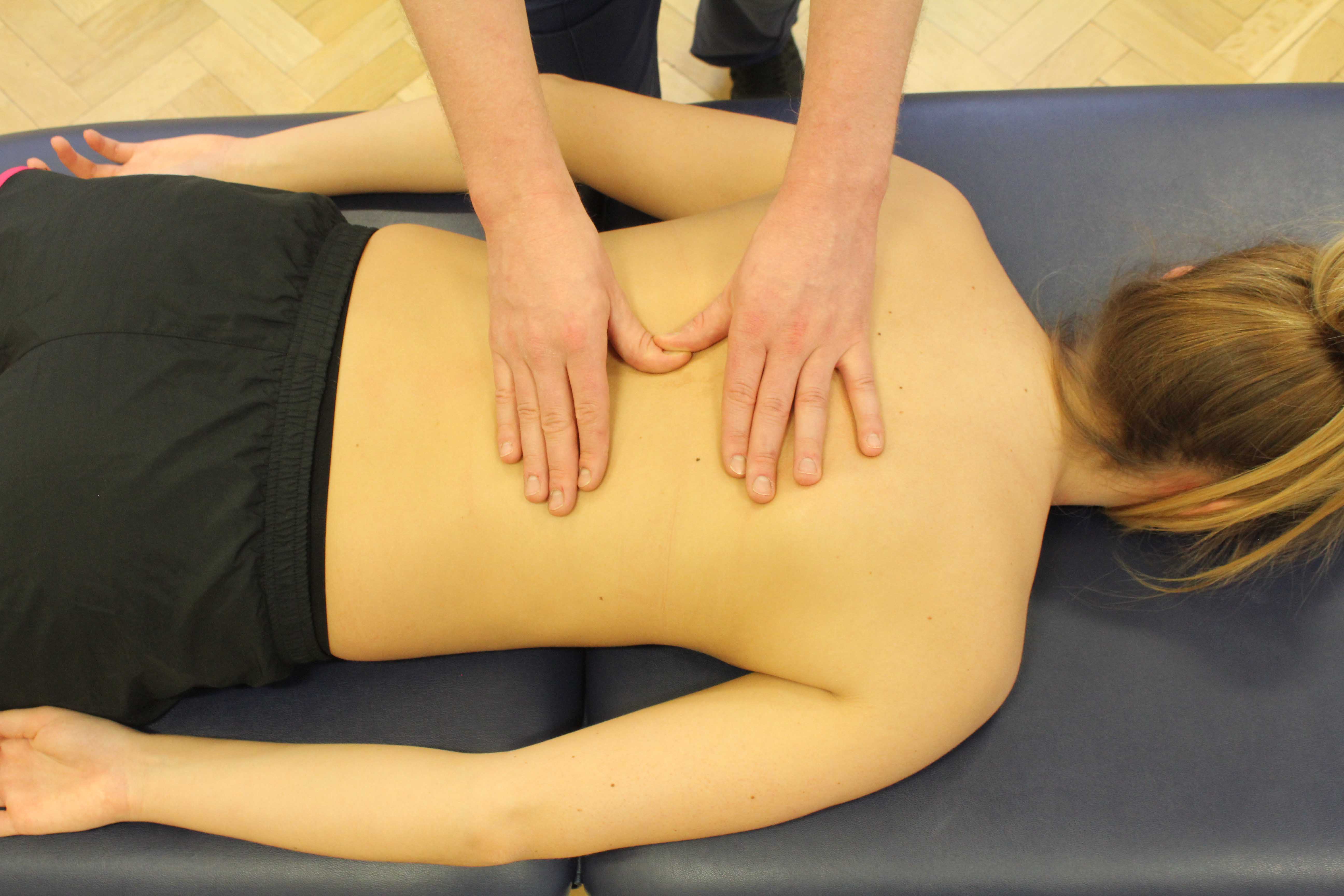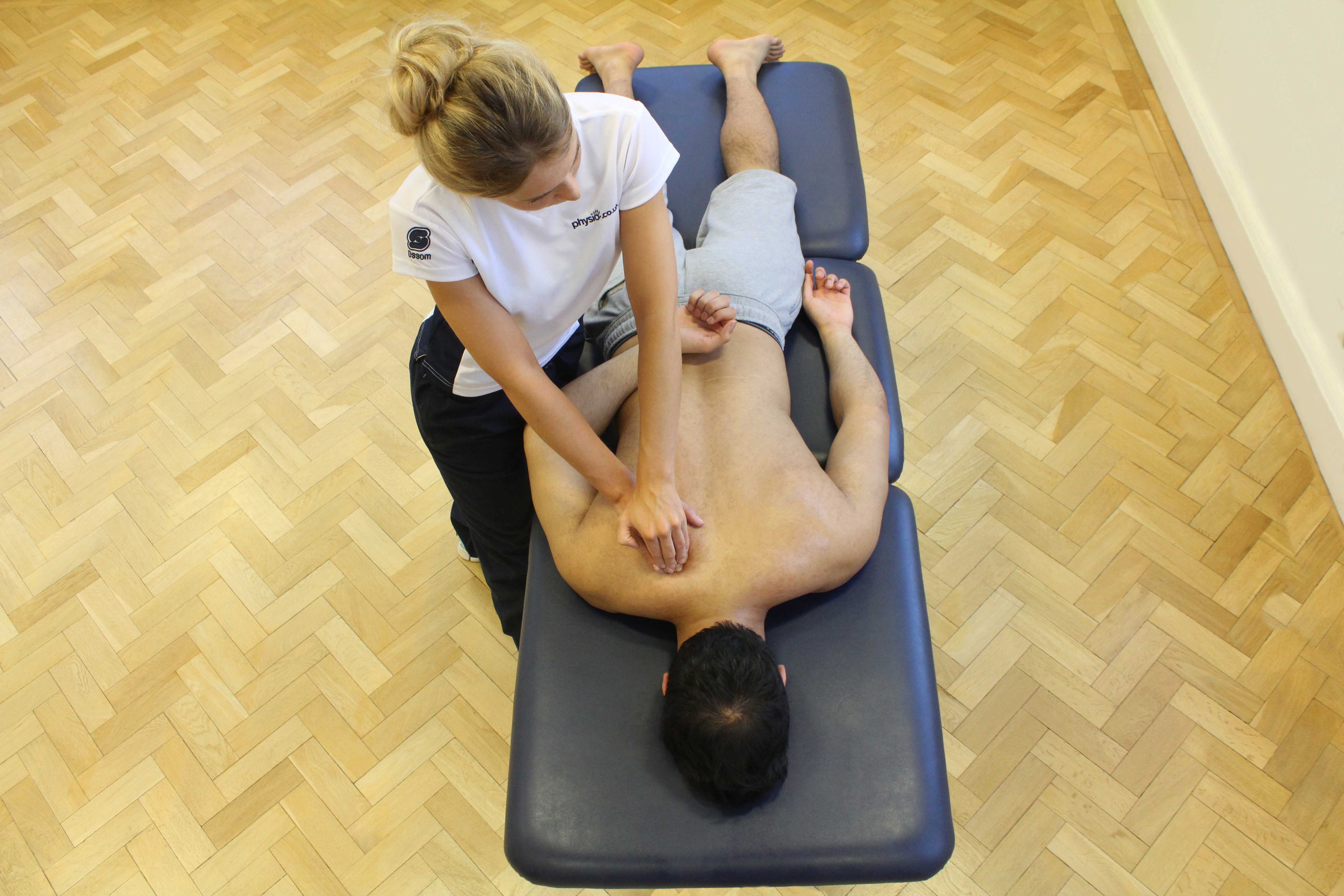What is thoracic outlet syndrome?
Thoracic outlet syndrome is compression of nerves and blood vessels that causes pain in the neck and shoulder and neurological symptoms in the fingers. The thoracic outlet is the space between the top of the rib cage and the clavicle (collar bone), near the shoulder. There are several nerves and blood vessels that run through this space. Thoracic outlet syndrome is a rare condition and makes functional tasks very difficult.
 Above: Mobilisations of the mid thoracic spine by experienced physiotherapist
Above: Mobilisations of the mid thoracic spine by experienced physiotherapistWhat causes thoracic outlet syndrome?
Thoracic outlet syndrome occurs when something makes the thoracic outlet space smaller. This causes compression of the nerves and blood vessels. Causes of this can include:
- Abnormally tight muscle in the area
- Overuse of the shoulder
- Trauma to the area
- The presence of an extra rib
- Low shoulders and poor posture
What are the symptoms of thoracic outlet syndrome?
Thoracic outlet syndrome symptoms can include:
- Pain in the neck and shoulders
- Reduced range of movement in shoulder and hand
- Pain in the fourth and fifth fingers and inner forearm
- Pins and needles in the forearm and fourth and fifth fingers
- Poor circulation in the forearm and hand – cold, swollen, bluish colour
- Weakness in shoulder and hand
 Above: Soft tissue massage of upper back muscles
Above: Soft tissue massage of upper back musclesPhysiotherapy for thoracic outlet syndrome
Physiotherapy can be very effective in treating thoracic outlet syndrome. Your physiotherapist will assess you but further diagnostic tests may be needed to diagnose thoracic outlet syndrome. Physiotherapy is aimed at reducing symptoms and preventing reoccurrence in the future. Treatment may include:
- Cold / heat therapy
- Electrotherapy
- Range of movement exercises
- Stretching exercises
- Strengthening exercises
- Postural education
- Practice of functional activities
Can thoracic outlet syndrome cause any long-term effects?
Physiotherapy can usually treat symptoms and facilitate a return to normal function. If the problem can’t be treated by physiotherapy, such as in the case of an extra rib, then surgery may be required to treat the problem. Physiotherapy would be central to rehabilitation following surgery.
 Above: Trigger point massage of the upper back muscles
Above: Trigger point massage of the upper back musclesTo arrange an assessment with Physio.co.uk please contact us or call 0330 088 7800.

 0330 088 7800
0330 088 7800


































